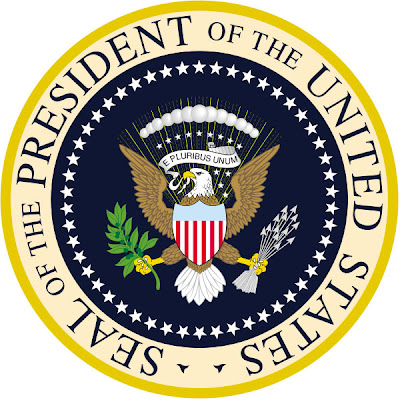
ROLEX CEO
Attends White House Meeting with Swiss Business Leaders
Underscore Longstanding Economic Ties
between Switzerland and the U.S.
Hodinkee published an excellent article today titled "Business News: Rolex and Richemont Executives Among Swiss Business Leaders Meeting With Trump", and included this image that shows Rolex CEO, Jean-Frédéric Dufour in attendance.
For the record, this is the first image I ever recall showing a Rolex CEO in the Oval Office with the President of the United States. This of course, is interesting when you take into consideration The Complete History of the Rolex President. I know former Rolex CEO, André-Jean Heiniger attended a function at the White House in 1977 with President Carter, but I have never seen any photos of him, or any other Rolex CEO in the Oval Office.
The Hodinkee article emphasized the nature of this Oval Office meeting and said:
Swiss business leaders, including the Chief Executive of Rolex, the Chairman of Richemont, and the co-founder of the private equity firm that controls Breitling, met with U.S. President Donald Trump in Washington this week to pledge support for ongoing trade talks between the two countries. The Swiss executive group, including Rolex CEO Jean-Frédéric Dufour, said they met with the President at their own initiative to underscore the longstanding economic ties between Switzerland and the U.S."While we gave our support to the ongoing negotiations between our two governments, we did not participate in any negotiations with the U.S. President. We expressed our belief that a bilateral trade agreement would further enhance economic collaboration in a manner beneficial to Switzerland and the United States," the private Swiss business group said in a joint statement.
President Trump posted the following on Truth Social on November 4, 2025 to commemorate and comment on his meeting with Swiss Executives:
To date, I haven’t discussed President Trump’s Swiss Tariffs, which make little sense to me. They appear to be an unfair and regressive tax on American consumers who fuel the $12 billion U.S. watch market. The 39% tariff would not be fair or equitable for either the Swiss watch industry or the American consumer.
In an ironic twist of fate, the U.S. Supreme Court heard oral arguments yesterday, for 2.5 hours challenging President Trump's use of the 1977 International Emergency Economic Powers Act (IEEPA) to impose sweeping tariffs.
Trump invoked IEEPA to declare national emergencies over fentanyl trafficking and trade deficits, issuing executive orders for "trafficking" tariffs (25% on Canada/Mexico, higher on China) and "reciprocal" or "Liberation Day" tariffs (10-50% on nearly all imports worldwide).
Challengers—educational toy makers Learning Resources and hand2mind, wine importer V.O.S. Selections, and 12 states led by Oregon—argued IEEPA's power to "regulate...importation" excludes tariffs (taxes reserved to Congress), no prior president used IEEPA this way, and it violates major questions doctrine and non-delegation principles.
Solicitor General D. John Sauer defended tariffs as traditional import regulation, citing Nixon-era precedent under IEEPA precursor.
Justices across ideological lines expressed skepticism: Chief Justice Roberts noted IEEPA's unprecedented tariff use; Justice Barrett questioned unlimited scope and refund logistics ("a mess"); conservatives like Gorsuch and Kavanaugh probed limits, invoking major questions.
Lower courts ruled against Trump; expedited SCOTUS review followed. The Supreme Courts decision is pending and they are expected to rule by January of 2026, which if they overrun President Trump would, potentially curb executive economic power.
It will be interesting to see how things play out, and if the Supreme Court overturns Trump, the 39% tariff will be dissolved, which I think is pretty likely. This would include overturning Trump's 47% Tariff on China.




















































